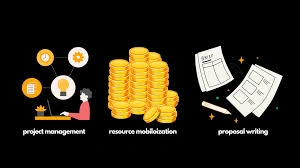Course Overview
This course provides a comprehensive introduction to Agile project management principles, practices, and tools. It is designed to equip participants with the essential knowledge and skills needed to effectively manage projects using Agile methodologies. The course covers the Agile mindset, core frameworks like Scrum and Kanban, and how to apply these in real-world projects to enhance collaboration, improve efficiency, and deliver high-quality results. Participants will engage in practical exercises and case studies to deepen their understanding of Agile practices and learn how to adapt them to various project environments.
Course Duration
5 Days
Who Should Attend
- Project Managers looking to transition to Agile methodologies.
- Team leaders and members involved in project execution.
- Business analysts and product owners seeking to understand Agile processes.
- IT professionals and software developers interested in Agile frameworks.
- Anyone involved in project management who wants to enhance their knowledge of Agile practices.
Course Objectives
By the end of this course, participants will be able to:
- Understand the core principles and values of Agile project management.
- Differentiate between various Agile frameworks and select the most appropriate for different projects.
- Apply Agile practices to manage project scope, time, cost, and quality effectively.
- Facilitate effective collaboration and communication within Agile teams.
- Implement Agile tools and techniques to improve project outcomes and adaptability.
Course Outline:
Module 1: Introduction to Agile Project Management
- Overview of Agile methodologies and the Agile Manifesto.
- Differences between traditional and Agile project management.
- Benefits and challenges of adopting Agile practices.
Module 2: Key Agile Frameworks: Scrum, Kanban, and Lean
- Detailed exploration of Scrum: roles, ceremonies, and artifacts.
- Introduction to Kanban: principles, practices, and workflows.
- Lean principles and their application in Agile projects.
Module 3: Agile Planning and Estimation
- Agile project planning techniques: release planning, sprint planning.
- Estimation methods: story points, planning poker, and T-shirt sizing.
- Managing scope and adjusting project plans in Agile environments.
Module 4: Facilitating Agile Teams and Communication
- Building and leading effective Agile teams.
- Communication strategies within Agile teams.
- Conflict resolution and decision-making in an Agile context.
Module 5: Tools, Techniques, and Case Studies
- Overview of popular Agile project management tools (e.g., Jira, Trello).
- Techniques for tracking progress and managing backlogs.
- Real-world case studies and lessons learned from Agile projects.
Customized Training
This training can be tailored to your institution needs and delivered at a location of your choice upon request.
Requirements
Participants need to be proficient in English.
Training Fee
The fee covers tuition, training materials, refreshments, lunch, and study visits. Participants are responsible for their own travel, visa, insurance, and personal expenses.
Certification
A certificate from Ideal Sense & Workplace Solutions is awarded upon successful completion.
Accommodation
Accommodation can be arranged upon request. Contact via email for reservations.
Payment
Payment should be made before the training starts, with proof of payment sent to outreach@idealsense.org.
For further inquiries, please contact us on details below:






